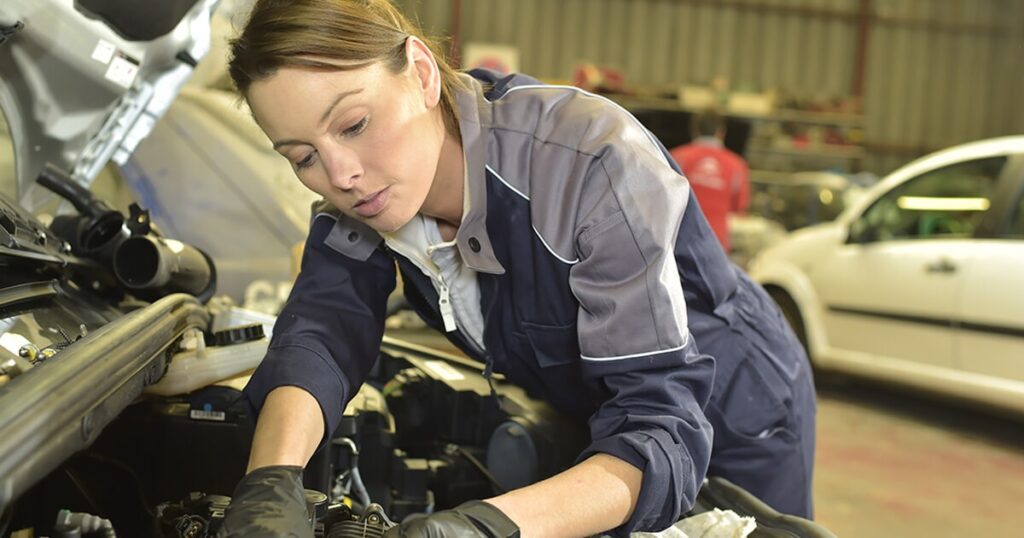Your car engine is the beating heart of your vehicle, responsible for delivering power and ensuring a smooth ride. As a car owner, it’s natural to want your engine to perform optimally and remain durable over time. By adopting a few essential practices, you can increase the lifespan of your car engine, minimize costly repairs, and enjoy a reliable driving experience for years to come. Whether you’re a car enthusiast looking for an exhilarating driving experience or simply want to enhance the aesthetics of your vehicle, the insignia exhaust is a perfect choice. The Insignia exhaust system is equipped with advanced technology to reduce back pressure, enhancing engine performance and fuel efficiency.
So, if you’re eager to discover how to boost the durability of your car engine and safeguard your investment, read on. Together, let’s explore the essential steps you can take to ensure your engine runs smoothly for years to come.
Regular Maintenance and Inspections
1. Change Your Engine Oil Regularly:
One of the most vital aspects of engine maintenance is changing the oil regularly. Engine oil lubricates the moving parts, reduces friction, and helps dissipate heat. Over time, the oil breaks down and becomes less effective, which can lead to increased wear and tear on the engine components.
2. Replace the Oil Filter:
Along with changing the oil, it’s equally important to replace the oil filter. The oil filter traps contaminants and debris, preventing them from circulating through the engine. A clogged or dirty oil filter can restrict oil flow and decrease engine performance.
3. Check and Top Up Fluid Levels:
Fluids such as coolant, transmission fluid, and brake fluid play crucial roles in maintaining the engine’s performance and preventing overheating or damage. Regularly check the fluid levels and top them up as needed. Also, pay attention to any leaks or signs of fluid degradation, as these issues should be addressed promptly to prevent engine damage.
4. Inspect and Replace Belts and Hoses:
The engine’s belts and hoses are responsible for driving various components, such as the alternator, water pump, and power steering pump.
5. Keep the Cooling System in Check:
The engine’s cooling system is vital in maintaining optimal operating temperatures. Overheating can cause severe engine damage, so keeping the cooling system in good condition is crucial. Regularly check the coolant level and inspect for any leaks or signs of corrosion. Follow the manufacturer’s recommendations for coolant replacement intervals and have the cooling system flushed and refilled as necessary.
Driving Habits and Fuel Quality
1. Warm Up the Engine:
When you start your car, allow the engine to warm up for a few minutes before driving off. This allows the oil to circulate and reach all the engine components, providing proper lubrication. Cold starts put extra stress on the engine, so allowing it to warm up can help prolong its lifespan.
2. Avoid Excessive Idling:
Idling for extended periods wastes fuel and puts unnecessary strain on the engine. If you anticipate being stationary for over a minute, it’s better to turn off the engine. Restarting the engine consumes less fuel than idling for long durations, reducing wear on engine components.
3. Practice Smooth Acceleration and Deceleration:
Aggressive driving, characterized by rapid acceleration and sudden braking, can significantly strain the engine. It’s best to accelerate and decelerate smoothly, allowing the engine to operate more flexibly. This not only helps reduce wear and tear but also improves fuel efficiency.
4. Avoid Overloading and Towing Beyond Capacity:
Exceeding your vehicle’s load or towing capacity puts excessive strain on the engine, transmission, and other critical components. Knowing your vehicle’s limitations and avoiding overloading it or towing weights beyond its recommended capacity is essential. Doing so will help preserve the engine’s durability and overall performance.
5. Use High-Quality Fuel:
Choosing the right fuel for your vehicle can significantly impact engine performance and longevity. Use high-quality fuel from reputable gas stations that meet the recommended octane rating for your car. Lower-quality fuels may contain impurities that can harm the engine over time. Consult your vehicle’s owner manual for the recommended fuel type.
6. Drive Regularly:
While avoiding excessive wear on the engine is important, letting your car sit idle for extended periods can also have detrimental effects. Regularly driving your vehicle helps keep the engine components properly lubricated and prevents issues like rust and corrosion. If your car is idle for an extended period, consider starting it up and letting it run for a short period to maintain engine health.
7. Follow the Manufacturer’s Maintenance Schedule:
Every vehicle has a manufacturer’s maintenance schedule outlining specific services and inspections at certain mileage intervals. Adhering to this schedule is crucial for preserving the durability of your engine. It ensures that all necessary maintenance tasks, including fluid changes, filter replacements, and component inspections, are timely.
To Conclude:
By upgrading to the Insignia exhaust, drivers can enjoy increased horsepower and torque, giving their vehicle an extra boost on the road.

